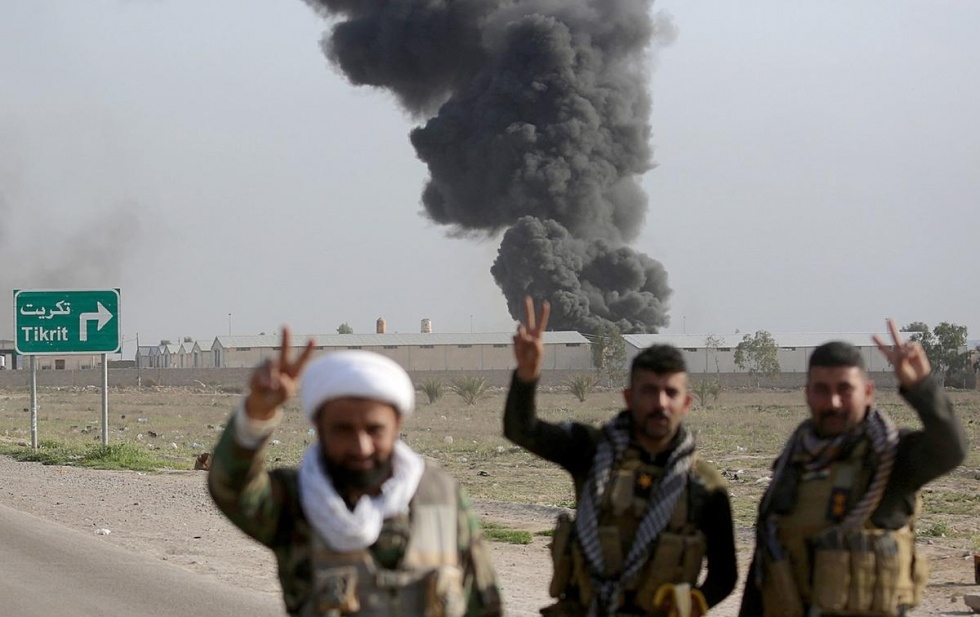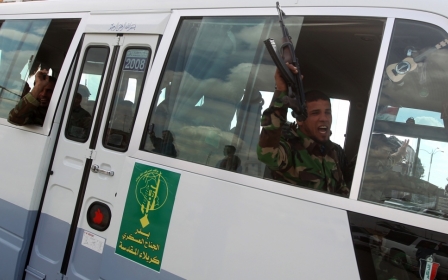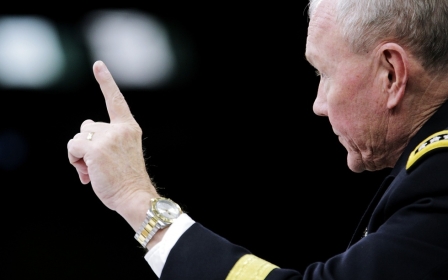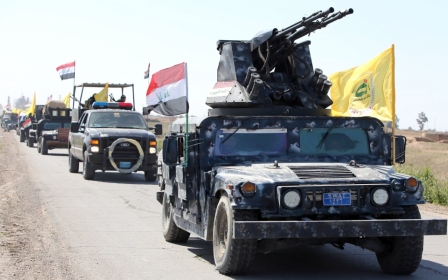US launches Tikrit air strikes to support Iraqi forces

US aircraft launched bombing raids to support Iraqi forces fighting to recapture Tikrit from the Islamic State group on Wednesday, after Baghdad issued a request for air power.
The offensive to take back Tikrit - the home town of the former Iraqi president Saddam Hussein - has stalled over the past week with fighters defending their positions with homemade bombs.
"I can confirm that the government of Iraq has requested coalition support for operations in Tikrit," Pentagon spokesman Colonel Steven Warren said.
"Operations are ongoing."
An Iraqi special forces lieutenant colonel told AFP: "International coalition forces bombed four areas in the centre of Tikrit City."
According to the Iraqi officer, the bombing began after nightfall and was continuing periodically.
Strikes hit an area around a palace compound area and near the Tikrit hospital, he said.
Over the weekend, US aircraft - including drones - began carrying out surveillance flights to support the Tikrit operation on the ground against the IS militants.
Other countries in the US-led coalition were taking part in the airstrikes, officials said.
"These strikes are intended to destroy ISIL strongholds with precision, thereby saving innocent Iraqi lives while minimising collateral damage to infrastructure," said Lieutenant General James Terry, who oversees the command in charge of the US war effort.
Although the United States and its allies have conducted airstrikes elsewhere in Iraq, the Baghdad government had not previously asked for American help for the Tikrit offensive.
Instead, long-time US foe Iran has played a prominent role, providing artillery and deploying advisers to the Iraqi Shiite militias also taking part in the operation.
But the assault has become bogged down, even though the Iraqi forces far outnumber the IS militants.
A belated request
US officials and military officers made no secret of their view that Iraq had made a mistake in not asking for American air power from the start and relying solely on Iran's assistance.
"Now the operation to take Tikrit really begins," one US defence official told AFP.
At a Pentagon briefing earlier on Wednesday, spokesman Colonel Warren said the US-led coalition was the most capable and "reliable" partner for Iraq.
He said the Iraqis had made confident predictions when the offensive on Tikrit was launched earlier this month, but he said "urban combat is difficult and slow" and the coalition had unmatched military power to offer.
"I think it's important that the Iraqis understand that what would be most helpful to them is a reliable partner in this fight against ISIL," he said.
"Reliable, professional, advanced military capabilities are something that very clearly and very squarely reside with the coalition."
US, Iran in common cause
President Barack Obama's administration has insisted it does not coordinate military operations directly with Iran and until this week the two countries have operated in separate areas in Iraq.
But the American surveillance flights and air raids in Tikrit illustrate how Washington is moving towards greater collaboration with Tehran, albeit indirectly, despite the intense distrust between the two arch-foes.
The senior general conducting the latest US war in Iraq, Lt General Terry, sidestepped all questions of Iranian involvement or influence in the fight for Tikrit in a statement on Wednesday, reported the Guardian.
Though expected for the better part of a week, and unlikely to be coordinated with Iran’s proxies, the belated introduction of US combat aircraft above Tikrit has brought the Obama administration to an awkward point it has long dismissed: a tactical, if tacit, alliance with its greatest rival in the Middle East.
“There’s going to be some tightrope-walking in saying this is an Iraqi security forces offensive and not an Iranian militia offensive,” said Christopher Harmer, a retired US navy officer and analyst with the Institute for the Study of War, who said he was “astonished” at the development.
The operation is seen as a test for the Iraqi forces, which collapsed in retreat last year against the IS group, despite billions of dollars worth of weapons and years of training by the US military.
The battle for Tikrit could clear the way for a much larger offensive to eventually retake the northern city of Mosul, which US and Iraqi commanders view as a pivotal fight that could alter the course of the war.
New MEE newsletter: Jerusalem Dispatch
Sign up to get the latest insights and analysis on Israel-Palestine, alongside Turkey Unpacked and other MEE newsletters
Middle East Eye delivers independent and unrivalled coverage and analysis of the Middle East, North Africa and beyond. To learn more about republishing this content and the associated fees, please fill out this form. More about MEE can be found here.




